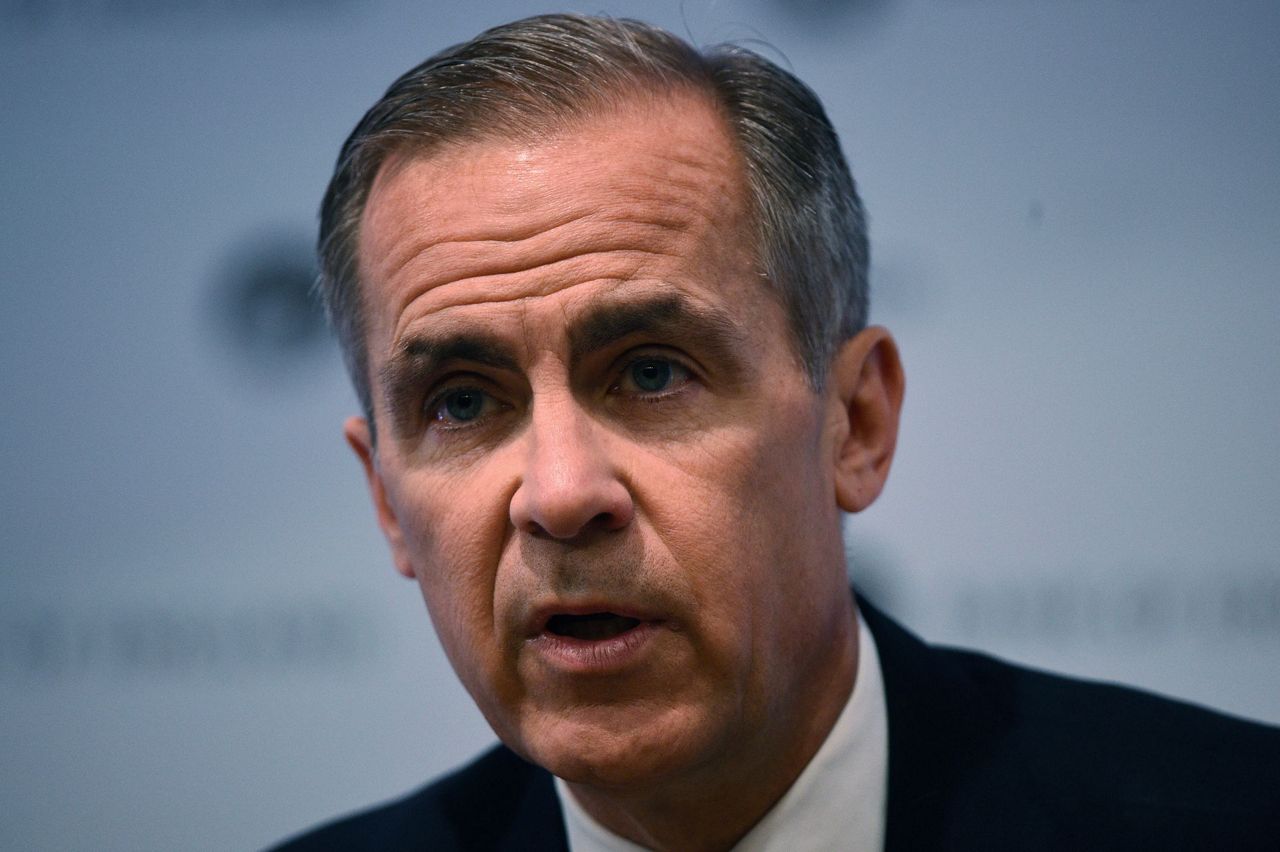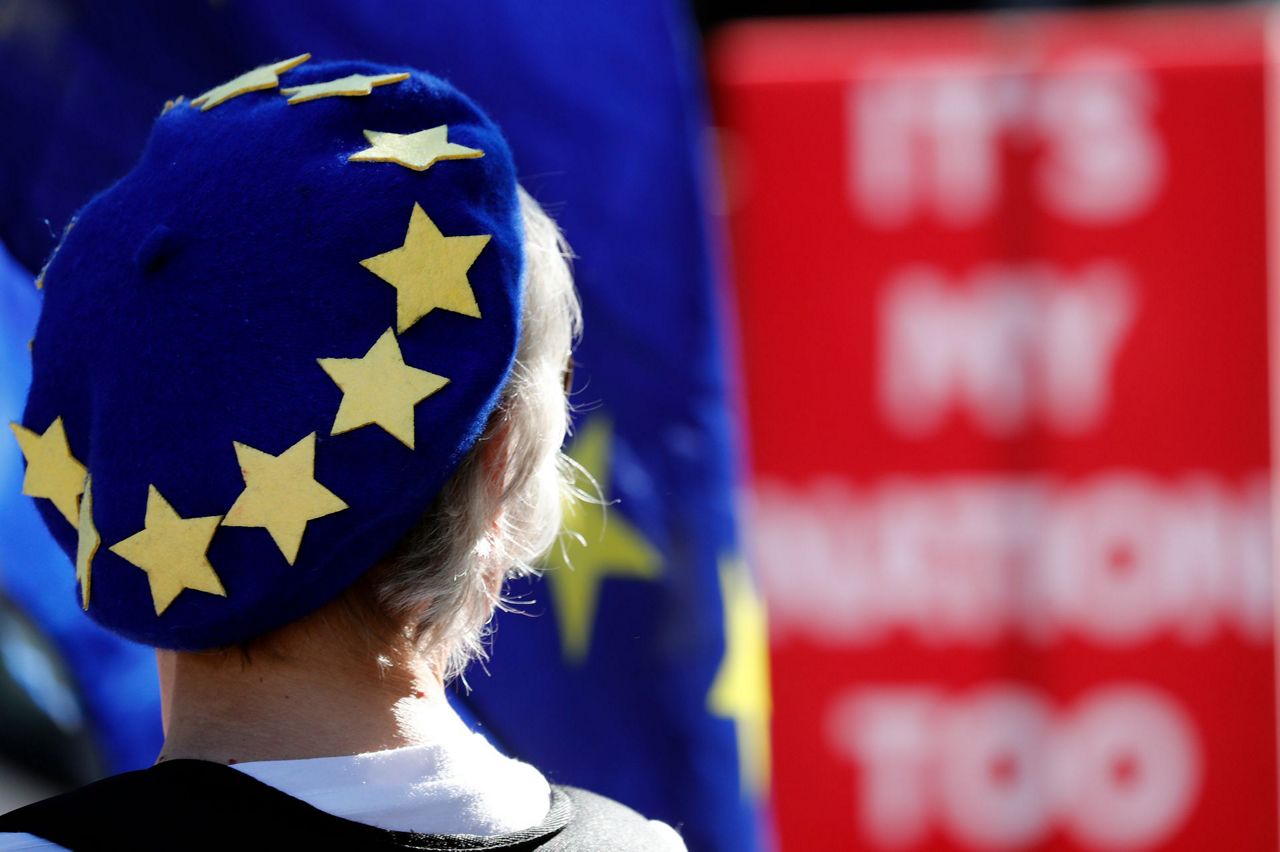LONDON (AP) — The prospect of Britain suffering an economic shock next month eased Tuesday after the British government paved the way for a delay in the country's departure day.
Confirmation that the government is mulling a Brexit delay turbo-charged the pound, which posted one of its biggest gains since the 2016 vote to leave the EU, which heralded a period of intense economic uncertainty. It hit a 21-month high against the euro above 1.16 euros and bounced a strong 1.3 percent higher against the dollar, to $1.3262, its highest since September.
But while extending Brexit day beyond March 29 would ease the immediate fears of a damaging "no-deal" Brexit, it doesn't completely take the prospect off the table, leaving a pall of uncertainty over the British economy.
Prime Minister Theresa May told lawmakers Tuesday that they will get a vote by the middle of next month on leaving the EU as planned with or without a deal, or whether to request an extension from the other 27 EU member states.
The prevailing view in financial markets is that May will struggle to get support for her withdrawal agreement with the EU. Also, there does not seem to be enough support for a "no-deal" Brexit, a scenario the Bank of England warned again Tuesday could cause a deep recession, surging inflation and a collapse in the pound.
U.K. bookmakers think it's now a near-certainty that Brexit will be delayed, with most offering odds that estimate an 85 percent chance of an extension.
"The markets clearly see this as a significant step that goes some way to taking 'no-deal' off the table, even if the prime minister was at pains to stress that this isn't the case," said David Cheetham, chief market analyst at XTB.
Though fears of an imminent economic shock have waned, uncertainty will linger over British businesses and households on how close Britain will be economically with the EU.
Bank of England Governor Mark Carney said an extension to the so-called Article 50 process that governs a country's exit from the EU would do little to lift uncertainty.
"There's a big difference between an extension of Article 50 — even a long extension — and an agreement with a transition to a known end-state," he told lawmakers Tuesday. "Wherever we're headed, it would serve the economy well to have a transition period to that new world, so people know soon where they headed, businesses could reorganize their affairs and get ready for this new world, and government could finish its various tasks."
The Bank of England said Tuesday it is ready to pump more liquidity into the U.K. financial system, should that be needed. It will hold liquidity auctions on a weekly basis, rather than monthly, from March through the end of April. It hopes the move will prevent any credit crunch if Britain does crash out of the EU without a deal, which is still possible even after May outlined her new approach.
Though Carney said there are no liquidity stresses in the financial system, he said the decision was "prudent and precautionary," and similar to the measures it took around the Brexit referendum.
Uncertainty has increased in recent weeks after May's Brexit deal with the EU was overwhelmingly rejected. Brexit uncertainty played a part in the decision of Nissan to abandon plans to build its new SUV in northern England. Business investment is weak — a 3.7 percent drop last year was the main reason why the economy only grew 1.4 percent, its lowest rate since 2012.
Greater clarity about Britain's economic relationship with the EU is unlikely before next months' parliamentary votes. And if lawmakers back an extension, it's unclear how long that extension would be. May indicated that an extension through the end of June was feasible and relatively straightforward. However, many lawmakers have already said they want a longer one as it doesn't' make sense to just replace one cliff-edge date with another so soon after.
"A shorter extension might have short-term political and practical advantages, but it would likely be more damaging for the economy," ING economist James Smith said. "A longer extension, while potentially more politically awkward for the U.K. government, could see growth recover a touch in the near-term as the imminent 'no-deal' threat recedes."
With Brexit it's never simple.
Copyright 2019 The Associated Press. All rights reserved. This material may not be published, broadcast, rewritten or redistributed.




